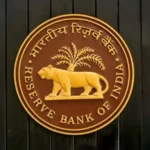
Key Highlights
- The Commission for Air Quality Management (CAQM) has amended the Graded Response Action Plan (GRAP) to tackle the worsening pollution in Delhi-NCR.
- New rules include mandatory closure of physical classes for students up to Class V under GRAP-III and Class XI under GRAP-IV.
- Face masks have been made mandatory outdoors, and staggered office timings have been recommended under GRAP-III.
Amendments to GRAP Rules
- School Closures:
- GRAP-III: Mandatory closure of physical classes for students up to Class V.
- GRAP-IV: Extends closure to Class XI.
- Previously, state governments had discretion over school closures, but now it is mandatory under these stages of GRAP.
- Staggered Office Timings:
- To reduce vehicular emissions, the CAQM suggested NCR states implement staggered work timings for public offices and municipal bodies.
- Mandatory Face Masks:
- Citizens must wear face masks outdoors to mitigate exposure to hazardous air.
- Construction and Transport Bans:
- All construction activities are prohibited.
- Only essential trucks and vehicles using clean fuel (LNG/CNG/BS-VI diesel/electric) are allowed in Delhi.
- Non-essential light commercial vehicles registered outside Delhi are prohibited unless they are EVs or run on clean fuel.
Judicial and Regulatory Push
- The Supreme Court had earlier directed Delhi-NCR states to establish enforcement teams for strict compliance with GRAP Stage 4 curbs, regardless of AQI fluctuations below the 450 threshold.
- The court emphasized the constitutional duty of the Centre and states to ensure a pollution-free environment for citizens.
Current Pollution Levels
- Delhi recorded a 24-hour average AQI of 493, the season’s highest, with 13 monitoring stations reporting AQI readings at the extreme levels of 499-500.
- The ‘severe’ category AQI has become persistent, indicating hazardous conditions that can cause respiratory and cardiovascular issues.
Implications of Amended GRAP Rules
- These measures highlight a stricter response mechanism to protect public health during the pollution crisis.
- They also reflect a shift towards preemptive mandatory actions rather than discretionary state decisions.
- However, the enforcement of these rules and their effectiveness in mitigating pollution remain critical challenges.
Conclusion
With Delhi-NCR grappling with severe air pollution, the revised GRAP measures are a crucial step in mitigating its impact. Stricter implementation and innovative long-term solutions are needed to ensure sustainable air quality improvement.




































Leave a Reply